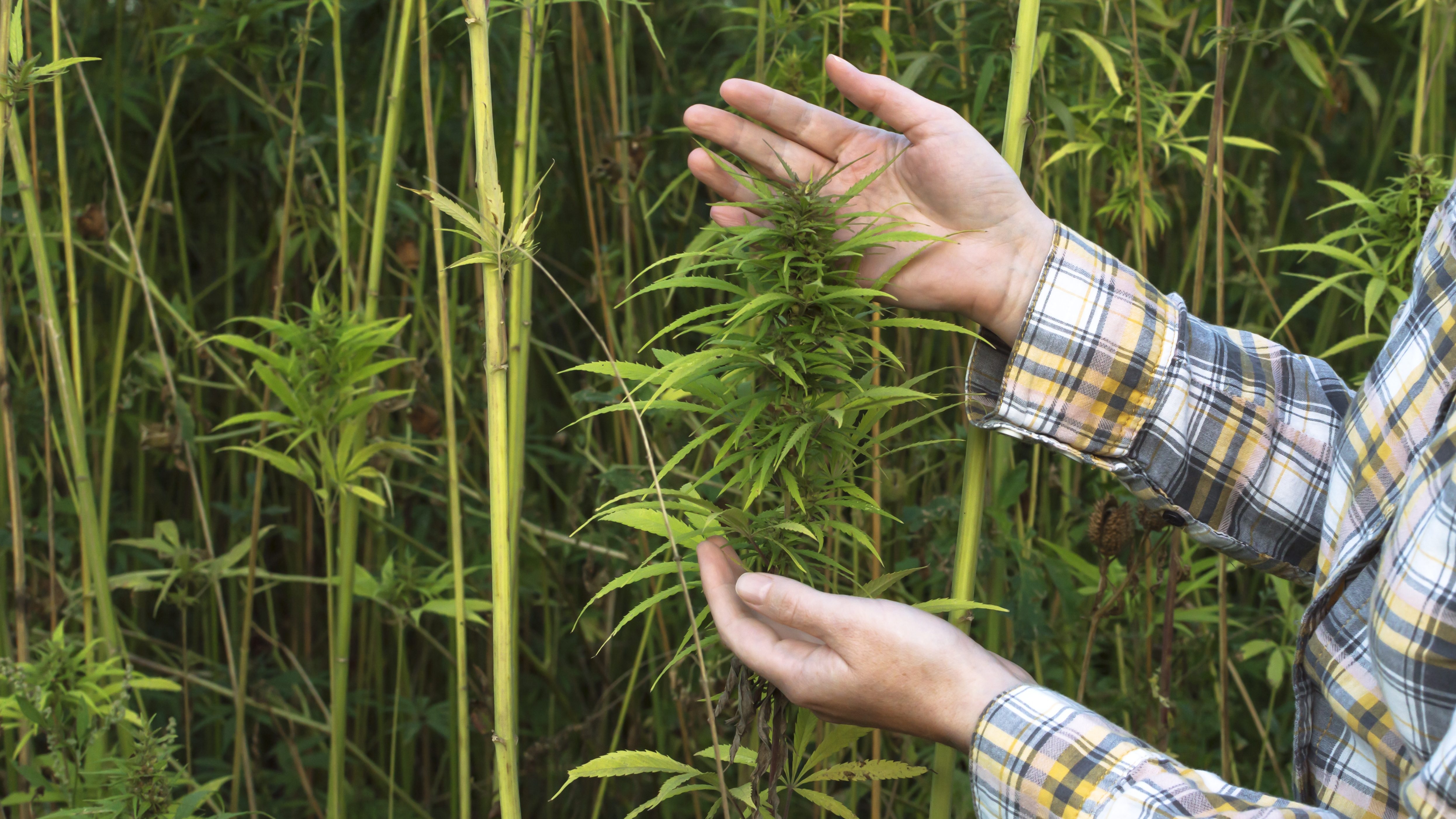The Senate Judiciary Committee on Wednesday passed a controversial amendment to another bill that would add Delta 8 and Delta 10 to the Alabama controlled substances list. This amendment is being vociferously opposed by the Alabama hemp industry.
The cultivation of hemp was made legal by the federal government when President Donald Trump signed the Farm Bill of 2019. Hemp has been cultivated for thousands of years and has numerous uses including: paper, rope, textiles, clothing, biodegradable plastics, paint, insulation, biofuel, food, and animal feed. The flowers of the hemp plant can be used to produced CBD. Most of the hemp that is grown in Alabama is for CBD, which reportedly has some therapeutic benefits. Hemp is a product of the Cannabis sativa plant, along with marijuana. Hemp is produced by low THC (tetrahydrocannabinol) varieties of the plant; while marijuana is much higher in THC, or more specifically Delta 9 tetrahydrocannabinol. High THC strains of marijuana can be in excess of 20 percent Delta 9 by weight. Hemp is very low in Delta 9 but does contains Delta 8 tetrahydrocannabinol and minute quantities of Delta 10 tetrahydrocannabinol.
Some herbalists claim that Delta 8 and Delta 10 have their own unique health benefits, like CBD. Both products, like CBD, are currently legal in the state of Alabama. On Wednesday, the Senate Judiciary Committee sought to change that.
Instead of introducing his own legislation to add Delta 8 and Delta 10 to the Alabama controlled substances list, state Sen. Arthur Orr, R-Decatur, added an amendment on to existing legislation; House Bill 2 which ban synthetic opioid like substance – tianeptine.
State Rep. Mike Holmes, R-Wetumpka, sponsored HB2 to ban tianeptine which is a chemical that affects brain chemicals. Tianeptine is an atypical antidepressant that seems to affect mood when used in low doses. In higher doses, it works like an opioid and can cause addiction and other serious side effects. Holmes’ original legislation passed out of the House on a 101 to 0 vote.
When that non-controversial bill reached the Senate Judiciary Committee, Orr added a new paragraph to HB2. ‘On page 2, after line 20, insert a new paragraph f. as follows: “f. Delta-8-Tetrahydrocannabinol and Delta-10-Tetrahydrocannabinol, including any salts, isomers, or salts of isomers of Delta-8-Tetrahydrocannabinol or Delta-10-Tetrahydrocannabinol.”
The bill, as amended by Orr, passed the Senate Judiciary Committee on a 6 to 3 vote.
The hemp industry reacted with horror to the news that Delta 8, one of the fastest segments of the legal hemp industry, and Delta 10 were being made substances which would be banned in Alabama.
The National Cannabis Industry Association explains, “Delta-8 is a compound similar to delta-9 but with less psychoactive effects. The hemp-derived delta-8 market has grown because delta-8 products can be delivered at near pure levels.”
According to the National Cancer Institute, “Delta-8-THC aids in reducing nausea, anxiety, low appetite, pain, and is neuroprotective.” Some studies in mice even indicate that one day it could prove useful in treating Alzheimer’s patients.
Amanda Taylor is a cannabis/hemp advocate working for Wagon Wheel Hemp. She suffers from M.S. and is a cancer survivor. She credits Delta 8 with helping her control nausea associated with her condition.
“This is basically the only thing keeping me alive right now, as it is my ONLY legal option to help me have an appetite and they want to classify it in the same schedule as METH!,” Taylor said.
LeAnne Owen is a Montgomery area licensed massage therapist who markets Delta 8 as part of her practice.
“People can say they are all for small business but this was the largest growing segment of the hemp market last year,” Owen said. “They will be putting farmers out of business. I have folks w cancer eating; folks who can’t sleep well taking less Benzos and folks on pain management taking less narcotics.”
The Alabama Cannabis Industry Association https://www.bamacannabis.org/ announced their opposition to the Orr amendment.
“We Oppose this Amendment. It’s premature to outlaw these potentially beneficial treatments for very serious conditions until research has been done. What we do know is that there have been no deaths attributed to delta-8-thc and cannabis is generally safer than even some over-the-counter medications. The Alabama Senate has the opportunity to regulate delta-8-thc and delta-10-thc in The Compassion Act so it is controlled but still accessible to people who will benefit from it in reducing suffering and improve quality of life,” the group said in a statement.
Chey Garrigan is the President and executive director of the Alabama Cannabis Industry Association.
“We are not opposed to HB2,” Garrigan said. “Tianeptine probably should be banned. What we are opposed to is the criminalization of Delta 8 and Delta 10.”
Garrigan said that the state already has severely overcrowded prisons and a heroin crisis to deal with. The further criminalization of cannabis only takes more resources away from fighting illegal opioids and clogs the already overcrowded court systems with more possession cases for two substances that are legal across the country.
Owen said that Delta 8 is not addictive.
“Anything used repeatedly can become a habit,” Owen said, “But it is not nearly as addictive as alcohol.”
“I am all for getting opioids off the street,” Owen said. “That (tianeptine) should be banned, but banning Delta 8 is going to cost jobs and hurt farmers.”
The Alabama Cannabis Industry Association has been advocating for passage of a medical marijuana bill, Senate Bill 46, by Sen. Tim Melson, R-Florence. That bill has passed the Senate and is now being considered by the House Judiciary Committee. Orr was the most vocal opponent of SB46 when it was in the Senate and has expressed deep concerns about the legalization of medical marijuana.
33 states already have some form of legal medical marijuana legislation. The House Judiciary Committee is expected to amend and vote on SB46 on Wednesday. The Senate could consider HB2 and the Orr amendment as early as Tuesday.
“The rest of the country is decriminalizing cannabis and Alabama is going in the opposite direction,” Owen said of the Orr amendment to HB2.
Tuesday will be day 19 of the 2021 Alabama regular legislative session. The legislature is limited by the state constitution to just 30 legislative days in a 105 day calendar period. The session began on Feb. 2.















































